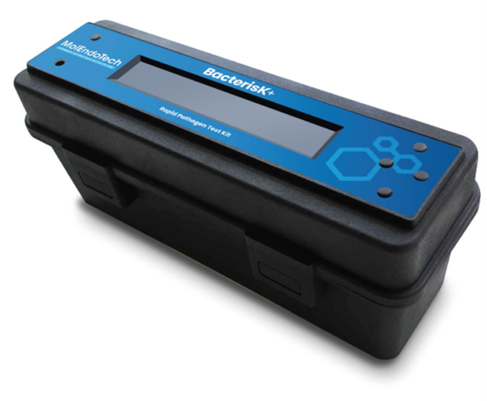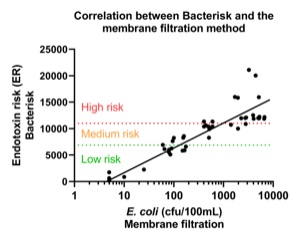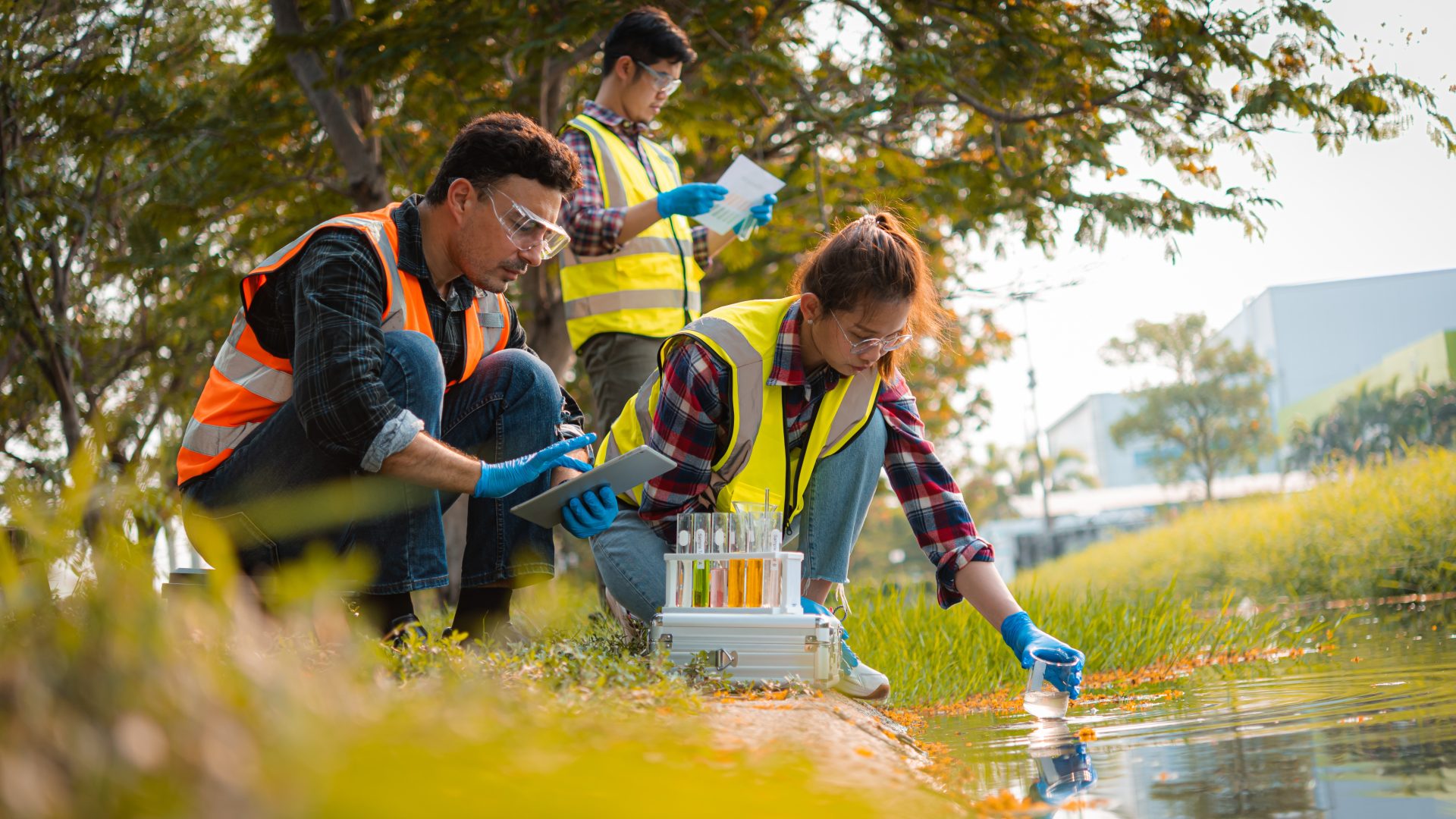Water is increasingly being used for recreational activities as a boost to both mental and physical health. Furthermore, local economies benefit greatly from the tourism generated from such activities.
However, microbial pollution from various sources such as sewage discharge and agricultural runoff pose a substantial risk to public health, with bathers more likely to show signs of gastrointestinal illness, respiratory, skin, ear and eye infections than non-bathers. Therefore, monitoring bathing water quality is vital to mitigate the health risks associated with recreational use of coastal and inland bathing waters and improve public perception and confidence in water quality.
Water quality is monitored for faecal pollution using faecal indicator bacteria (FIB), commonly, Escherichia coli (E. coli) and enterococci. The current gold standard to enumerate FIB use culture-based methods that have been in use since the mid-20th century. Although these methods are well established, they have several major drawbacks. The most notable being that they require growth of the organism that takes at least 18–48h meaning any result obtained is retrospective delaying proactive measures to be taken concerning polluted waters. Considering that delays as short as 1-2 hours can result in pollution exposure with associated health risks, the need for significantly shorter lead times for obtaining accurate results is a critical bottleneck for assessing water quality in water supply infrastructures and recreational water bodies.
In addition, current methods require sample transportation to specialised laboratories and trained personnel to carry out the testing in a reproducible way. Moreover, by focussing solely on FIB it is possible that other pathogens that are not necessarily of faecal nature, may go undetected. FIBs are only a proxy for other pathogens that may be present. Indeed, recent estimates suggest that current culture methods may not detect many E. coli, including pathogenic E. coli that do not express the enzyme β-D-glucuronidase, used by many culture-based detection methods. Moreover, recent research highlights the occurrence of Salmonella spp., including serotypes of clinical importance such as S. enteritidis and S. typhimurium, in bathing waters that had been classified as ‘good’ by current indicator detection methods.
Rising sea temperatures are causing an increase in Vibrio bacteria in the sea around the UK. These may not only cause harm to shellfish but also pose a risk to human health. Additionally, several flaws in this indicator-based approach render it unreliable: it is time-consuming, lacks specificity, and struggles to detect slow-growing or Viable But Non-Culturable (VBNC) microorganisms. In fact, research indicates that a substantial portion of cells in conventional plate cultivation tests is Viable But Non-Culturable (VBNC) and goes undetected, underestimating the actual bacterial load in water samples. These drawbacks to the current culture-based approaches highlight the need for not only rapid, but also more complete solutions to better indicate a broader set of pathogens and protect human health.

Building on its research expertise, Molendotech has developed novel technology to rapidly detect pathogens in water. The innovative technology allows near real-time assessment of bacterial contamination of water and overcomes the limitations of current culture-based approaches and allows rapid risk assessment of water quality. The team at Molendotech have developed a portable near real-time assay (Bacterisk) designed to be used by non-specialist staff in situ (Figure 1). The kit is being extensively trialled and is being used by several water companies and other groups interested in rapid water quality assessment. Key Features of Bacterisk are:
- Unique technology
- Rapid results (<30 minutes)
- Integrated System – Incubator / Reader
- Robust with Small Footprint (The unit is 29 x 12.5 x 11 cm and weighs 1.5 kgs)
- Mains / Battery operated
- 10 tests simultaneously
- Data transfer

The technology relies on an enzyme-based methodology, designed to swiftly identify and detect a molecular biomarker closely associated with Gram-negative bacteria. These bacteria types include faecal indicators such as E. coli but also notorious pathogens such as Salmonella, Campylobacter and Pseudomonas species, often found in contaminated water and posing significant health risks. Our assay demonstrates a strong correlation with E. coli and coliforms, as detected by traditional culture methods (Figure 2). However, its capabilities extend beyond coliforms, allowing for the identification of a wide range of bacterial contaminants including pathogenic species not detected by current methods. Moreover, the assay protocol is designed to overcome effects of turbidity, pH, salinity etc and is thus suitable for a broad range of water samples.
Thus, Bacterisk provides a unique solution for rapid water risk assessment. It is portable, allowing on-site use, easy to use by non-specialist staff, runs up to ten samples at a time and provides results within 30 minutes.



